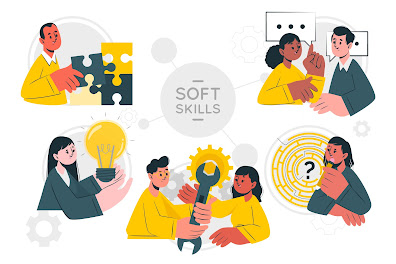Unlocking Career Advancement: Level 3 Certificate in Assessing Vocational Achievement
Introduction:
In the dynamic landscape of vocational education, the Level 3 Certificate in Assessing Vocational Achievement (CAVA) stands out as a key qualification for those aiming to take on assessing roles within vocational settings. In this blog, we will delve into who should consider pursuing the Level 3 CAVA course, shedding light on the eligibility criteria and entry requirements for prospective candidates.
Who Should Consider the Level 3 CAVA Course?
The CAVA Level 3 course is tailored for individuals seeking to become qualified assessors within vocational education and training. Here are some profiles of individuals who would benefit from undertaking this course:
1. Experienced Assessors without Formal Qualifications:
- If you have been working as an assessor without possessing a formal qualification, the Level 3 CAVA course is designed to validate your skills and knowledge. It provides a recognized credential that enhances your professional standing in the field.
2. Aspiring Assessors:
- Individuals aspiring to enter the field of vocational assessment can kickstart their journey with the Level 3 CAVA course. This qualification equips them with the necessary skills and knowledge to carry out assessments effectively and ethically.
3. Trainers and Educators:
- Trainers and educators working in vocational settings can benefit from the Level 3 CAVA course as it complements their existing skills. It enables them to assess the competence of learners and contribute to the improvement of vocational training programs.
Eligibility Criteria for Level 3 CAVA Course:
While specific eligibility criteria may vary among awarding bodies and institutions, there are common requirements that candidates typically need to meet:
1. Occupational Competence:
- Candidates are often required to possess occupational competence in the vocational area they intend to assess. This ensures that assessors have a deep understanding of the industry standards and practices.
2. Level 2 or Equivalent Qualification:
- Many institutions set a requirement for candidates to have a Level 2 qualification or its equivalent. This could be in a relevant subject or a related field, showcasing a foundational understanding of the educational context.
3. Access to Learners for Assessment:
- Prospective candidates should have access to learners in a vocational setting, as the course involves practical assessments. This criterion ensures that candidates can apply their learning in a real-world context.
4. Language and Literacy Skills:
- Good language and literacy skills are crucial for effective communication, documentation, and the preparation of assessment materials. Candidates are often expected to have a certain level of proficiency in English or the language of instruction.
Entry Requirements:
1. Application Process:
- The journey begins with the completion of an application form, which may be available online or through the educational institution offering the course. This form typically requires information about the candidate's educational background, work experience, and motivations for pursuing the Level 3 CAVA course.
2. Interview:
- Shortlisted candidates may be invited for an interview. This interview provides an opportunity for the applicant to discuss their understanding of vocational assessment, their commitment to the role, and how they plan to apply the knowledge gained from the course in their professional context.
3. Reference Checks:
- Institutions may conduct reference checks to verify the candidate's work experience, particularly in terms of occupational competence. References from supervisors, colleagues, or industry professionals can attest to the candidate's suitability for the role of an assessor.
4. Professional Development Commitment:
- A genuine commitment to professional development is essential. Candidates should be able to articulate how completing the Level 3 CAVA course aligns with their career goals and contributes to their effectiveness as vocational assessor.
Conclusion:
The Level 3 Certificate in Assessing Vocational Achievement course serves as a gateway for individuals aspiring to become competent and qualified assessors in the vocational education sector. Whether you are an experienced assessor seeking formal recognition, an aspiring assessor entering the field, or a trainer looking to enhance your assessment skills, this course provides a solid foundation. By meeting the eligibility criteria and navigating the entry requirements with dedication, prospective candidates can unlock new opportunities for career advancement and contribute significantly to the quality of vocational education.

.jpg)


Comments
Post a Comment